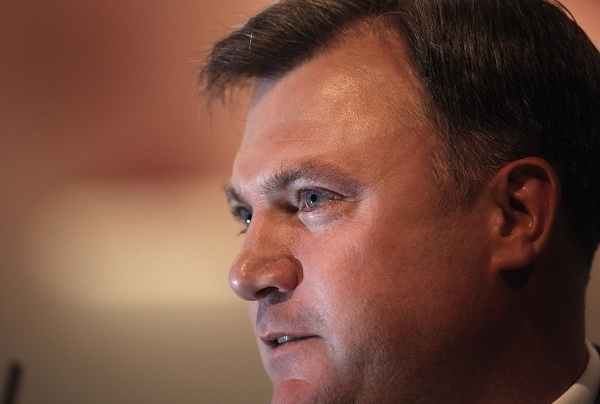Ed Balls has had plenty of warning about how politically dangerous this month’s spending review will be for him. James reported in April that George Osborne planned to use the settlement (when he eventually gets it) to prod the Labour party. But perhaps it’s also the party’s inability to make polling hay from the Tories in crisis over the past month that has provoked not one but two big policy speeches from the Labour leadership this week.
The concession that Balls will give in today’s speech about universal benefits no longer being automatically justifiable has attracted the most attention. The Shadow Chancellor is expected to say:
‘When our NHS and social care system is under such pressure, can it really remain a priority to pay the winter fuel allowance – a vital support for middle and low income pensioners – to the richest 5 per cent of pensioners, those with incomes high enough to pay the higher or top rates of tax?
‘Labour believes the winter fuel allowance provides vital support for pensioners on middle and low incomes to combat fuel poverty. That’s why we intruded it in the first plea. But in tough economic times we have to make difficult choices about priorities for public spending and what the right balance is between universal and targeted support. So at a time when the public services that pensioners and others rely on are under strain, it can no longer be a priority to continue paying the winter fuel allowance to the wealthiest pensioners.’
There are two things in Balls’ speech that will cause a wry smile to creep across the faces of many Tories. The first is that it was a campaign by the Labour party in 2010 that bounced the Conservative party into protecting pensioner benefits for this parliament, something that has made the 2015/16 spending review negotiations particularly fraught. The second is that Balls will repeat a line he’s used before that suggests he’s stealing the Tories’ ‘we’re clearing up Labour’s mess’ clothes. He will say:
‘With the Chancellor refusing to change course, Labour must start planning now for what will be a very tough inheritance in 2015. It will require us to govern in a very afferent way with much less money around. We will need an iron discipline and a relentless focus on our priorities.’
Scrapping universalism is a tricky enough thing for the Labour party to swallow. But Balls also has some home truths that many of his colleagues don’t appear to have woken up to yet. He makes the clearest admission yet that Labour will have to face up to these scary graphs that the IFS produced in March, saying:
‘So this is the hard reality. The last Labour government was able to plan its 1997 manifesto on the basis of rising departmental spending in the first years after the election. The next Labour government will have to plan on the basis of falling departmental spending. Ed Miliband and I know that, and my shadow cabinet colleagues know that too.’
The problem that this acknowledgement of reality brings is that it will from now on be very hard for Balls and his colleagues to oppose every cut simply on the basis that it’s a difficult one to make. Their strategy so far has been to talk about ‘what we’d do now’, rather than their 2015 manifesto, but the party is now looking to the future, and finding it doesn’t look quite as rosy as opposition.







Comments